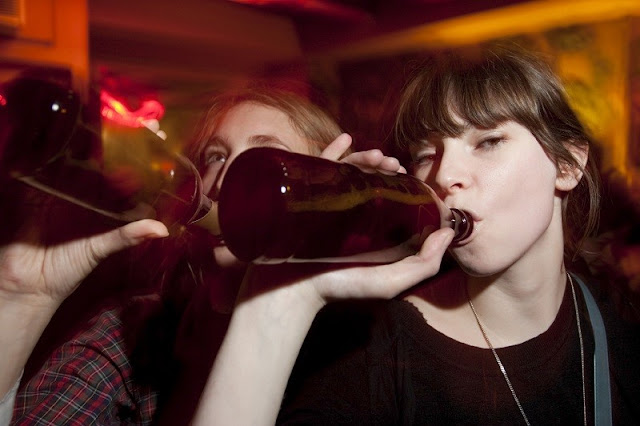Many teens struggle with binge drinking and even alcoholism. Drinking is highly encouraged among peers that it's hard for a teen or young adult to say no to alcohol, without looking foolish. Instead, many teens don't even think about saying no. They join in the fun they're friends are having, alcohol and all.
However, over time, some drinking habits may become excessive. In fact, some teens might slowly develop an addiction to alcohol. And if a teen lands in a physician's office or the office of a school principal, counselor, then he or she may get the CAGE questionnaire - a method used to assess a teen's level of drinking.
CAGE forms an acronym, of which each letter is contained in each of the four questions that make up the assessment. Two positive answers indicate that there may be the possibility of an addiction to alcohol. The questions of the CAGE assessment go like this:
- Have you ever felt you needed to Cut down on your drinking?
- Have people Annoyed you by criticizing your drinking?
- Have you ever felt Guilty about drinking?
- Have you ever felt you needed a drink first thing in the morning (Eye-opener) to steady your nerves or to get rid of a hangover?
As parents , caregivers, or professionals working with teens, this may be a useful tool. And a teen who answers positively to feeling the need to cut down, feeling annoyed when others criticize their drinking, feeling guilty about their behavior, or using alcohol as a way to wake up, may certainly have an issue with alcohol.
In fact, some professionals using the CAGE questionnaire almost immediately recognize a problem with alcohol when a person answers positively to the last question. If a person requires alcohol upon waking in the morning, there most certainly may be a problem. The need for alcohol first thing in the morning indicates that there is a dependence and that a person may begin to experience withdrawal symptoms if they do not drink right away after rising.
The CAGE questionnaire is a widely used screening test for problem drinking and potential problems with alcohol. This screening tool has been validated by many accounts of accuracy and it is considered a valid tool to use to assess for alcoholism in both teens and adults. However, it should be noted that this tool is not valid for assessing for addictions to other substances or to behaviors. Despite this, professionals have modified the CAGE questionnaire to assess for other types of addiction.
If it turns out that a teen does in fact have an addiction
to alcohol it's important to get the necessary help. An addiction to alcohol,
or any substance, can get worse over time. With the right support - medical
detoxification, addiction treatment, medication to treat withdrawal effects,
and receiving an education on addiction and recovery - can all contribute to
healing and overcoming an addiction. A teen who undergoes addiction treatment
can heal from alcoholism and create a life they enjoy.

No comments:
Post a Comment